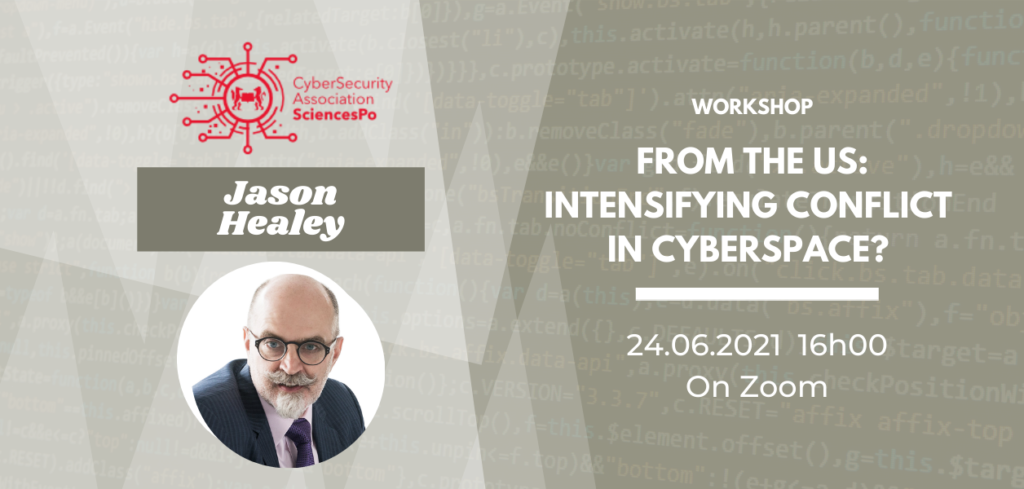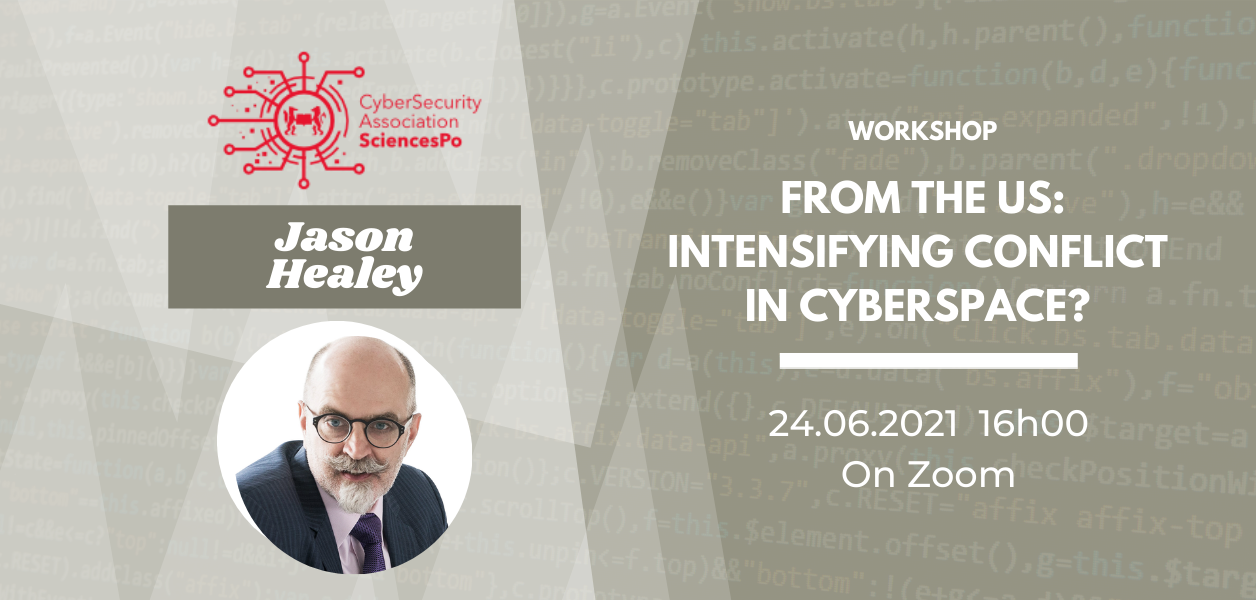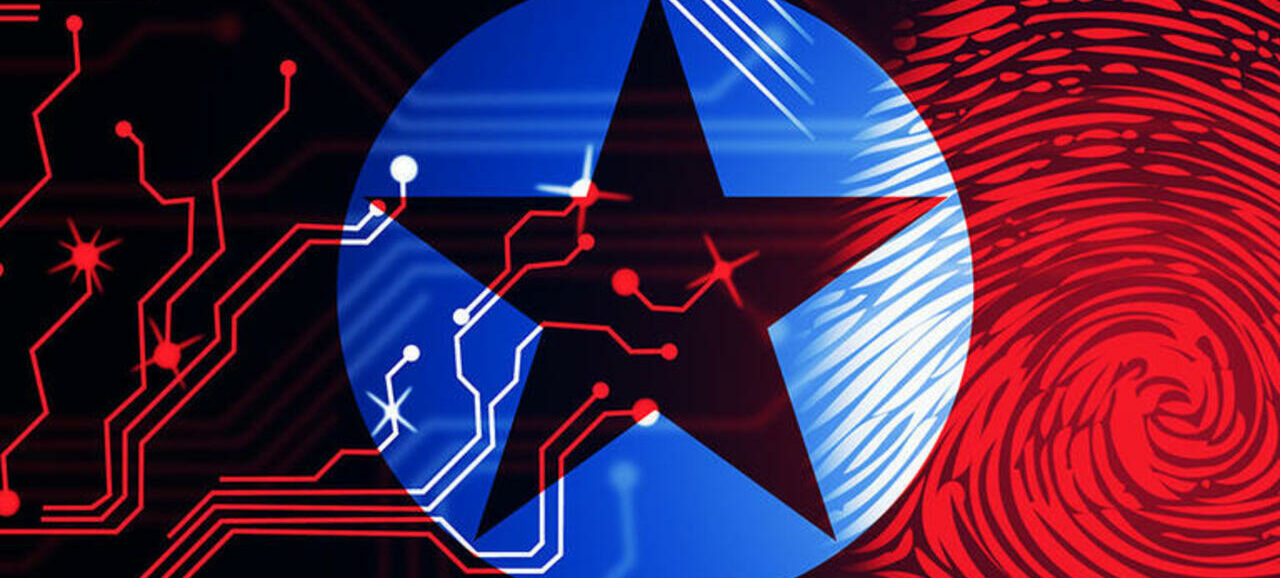
- How does the US apprehend cyberspace?
- What do the concepts of ‘persistent engagement’ and ‘defending forward’ mean?
- Why has the USA perpetuated intensifying conflict in cyberspace?
- What are the benefits and disadvantages of the US’s national cyber doctrine?
- How does that strategy interact with key allies and international norms?
- How does the NSA conduct mass surveillance in the USA and beyond?
For its last event of the 2020-2021 academic year, the Sciences Po Cybersecurity Association invited former US Military, cyber expert Jason Healey to explore the answer to these questions.
Jason Healey is a Senior Research Scholar in the Faculty of International and Public Affairs and Adjunct Professor of International and Public Affairs at the School of International and Public Affairs, Columbia University. He is also a Senior Fellow with the Cyber Statecraft Initiative at the Atlantic Council, where he was the program’s founding director. He has published several academic articles, essays, and books on the topic of cyber security and has advised on security measures for corporate, government, and military institutions. He has been identified as the first historian of cyber conflict.
As one of the leading cybersecurity policy analysts in the world, Healey brought a sharply critical eye to the US’s role in intensifying conflict in cyberspace.



